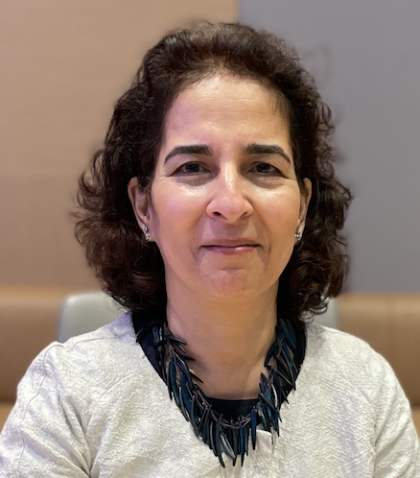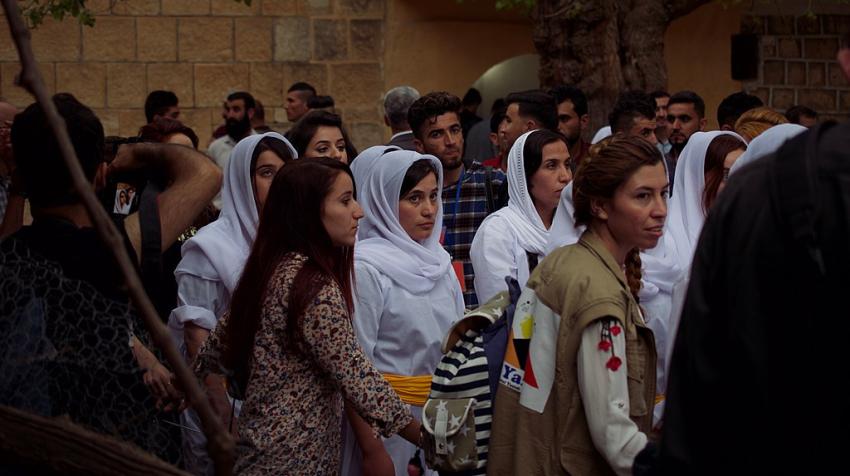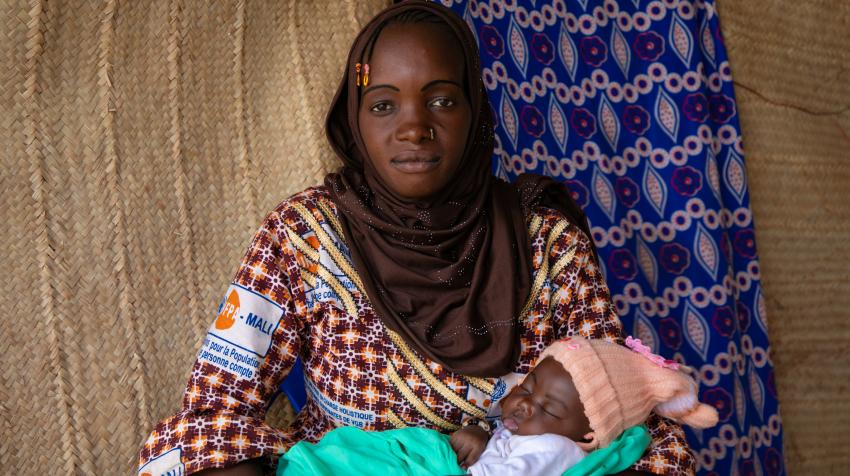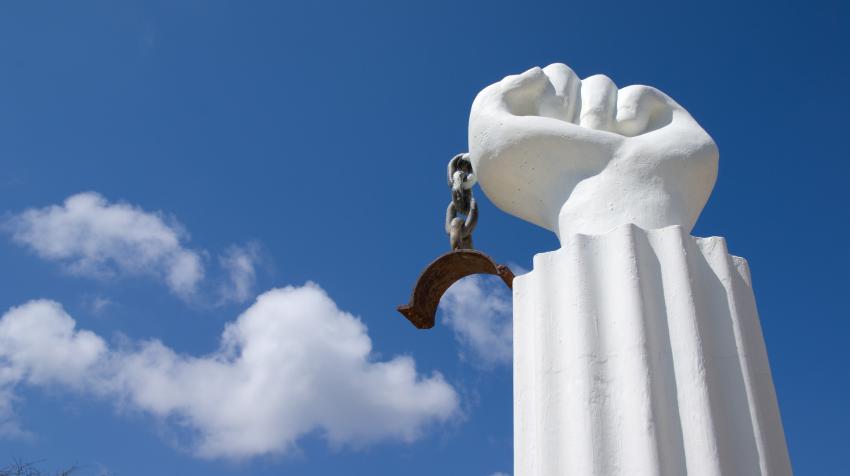21 August 2023
In 2019, the United Nations General Assembly designated 22 August as the International Day Commemorating the Victims of Acts of Violence Based on Religion or Belief. On this day in 2022, one of my first public acts as Special Rapporteur on freedom of religion or belief, and in partnership with the Special Advisor on the Prevention of Genocide, Under-Secretary-General Alice Wairimu Nderitu, was to join 54 other mandate holders in condemning the ongoing, widespread and cynical abuse of religion or belief as a tool of discrimination, hostility and violence, calling on States to redouble efforts to provide redress to victims and underlining the importance of working together with State and non-State actors to prevent such violence. We honoured the victims as well as their inherent dignity and equal and inalienable rights, and committed to ensuring that no one suffer on such grounds.
In the subsequent 12 months, I have dedicated my first two thematic reports to mapping the landscape of freedom of religion or belief in the world. The first report, with international focus, was delivered to the Human Rights Council in March 2023; the second report, with national focus, will be delivered to the General Assembly in October 2023.
Landscape of freedom of religion or belief
Freedom of religion or belief, and the prohibition of discrimination based on religion or belief, are represented in the International Bill of Human Rights; the African, American, and European human rights conventions; and other standards. With due regard for the importance of treaty law, however, human rights must be practically and effectively enjoyed lest these provisions be deemed a “dead letter”.
Regrettably, in 2023—37 years after the establishment of my mandate, 42 years after the adoption of the 1981 United Nations Declaration on the Elimination of All Forms of Intolerance and of Discrimination Based on Religion or Belief, and 75 years after the proclamation of the Universal Declaration of Human Rights, which enshrined the rights to freedom of religion or belief as well as non-discrimination on that basis, the landscape of freedom of religion or belief in the world remains very challenging.
This is perhaps most apparent in situations of armed conflict. Well-known examples of violations committed during armed conflict include the plight of the Rohingya Muslims, Christians being targeted by armed groups in parts of West Africa, and the crimes against humanity and genocide perpetrated by the Islamic State against Yazidis. Relatedly, the counter-terrorist discourses and policies that have proliferated since 2001 continue to have a chilling effect on religious or belief minorities’ abilities to manifest their beliefs, and pose a significant threat to civic space more broadly, which is of such importance in the face of the intersecting challenges humanity currently faces.
In numerous States, individuals and communities are denied their fundamental rights to their religious or belief identities from the day they are born.
Direct violence against marginalized religious or belief communities often goes hand in hand with, and is facilitated by, legally mandated discrimination at the national level and/or unchecked and widespread prejudicial and discriminatory attitudes. In numerous States, individuals and communities are denied their fundamental rights to their religious or belief identities from the day they are born. A key mechanism for this is the refusal by Governments to officially recognize religious or belief identities, which may include indigenous, non-religious beliefs and others, and the spate of individual and collective human rights violations that flow from non-recognition. These begin, in many cases, with denial of citizenship itself. Furthermore, the fundamental right to change one’s religion or belief continues to be criminalized in many contexts, with punishments which, in some cases, include the death penalty.
Law enforcement officials and public prosecutors should be the principal actors in offering protection and redress to those who are subjected to violence based on their actual or perceived religion or belief. Nonetheless, in situations where the constitutional or legal framework does not respect freedom of religion or belief, law enforcement and legal authorities are often the primary intellectual and material authors of violations of rights such as the arrest, detention and prosecution of individuals. These violations can be based on unsubstantiated allegations of national security crimes, extremism, terrorism, blasphemy or apostasy, or violations of religious dress codes or other traditions, all of which are incompatible with international human rights standards. Subsequently, individuals deprived of their liberty are particularly vulnerable to mistreatment related to their religion or belief as well as due process violations.

However, even where the legal framework itself does not criminalize particular religious or belief belonging outright, widespread prejudicial attitudes among functionaries of the State can motivate them to abandon their obligations towards those under their jurisdiction. My mandate has received credible allegations of functionaries failing to take action against, or even participating in, religiously motivated mob violence such as attacks on religious leaders, including indigenous spiritual leaders; the destruction of places of worship; and online campaigns of threats and harassment.
Criminal justice alone is not up to the task of transforming the widespread prejudices and attitudes at play. I submit that these can only be effectively addressed through engagement with freedom of religion or belief as established under international human rights law. This includes ratifying the relevant treaties and repealing unhelpful reservations, certainly, but also bringing domestic legislation into line with these standards; their promotion through dialogue and education at all levels of the State; and the involvement of civil society, the business community and religious leaders.
Violence in the name of religion or belief doesn’t stop there and can include gender-based violence, denial of sexual and reproductive rights, seeking to justify violence and discrimination against minorities, and harmful practices against girl children. States are obliged to take positive measures to address this violence at the individual and systemic levels, including through addressing the underlying attitudes that lead to violent acts.
As much as it is appropriate to condemn violence and violations around the world, 22 August also allows us a moment of introspection.
As we consider the ongoing challenges to the realization of the 2030 Agenda and its Sustainable Development Goals, States must be clear-eyed about the obstacle that marginalization based on religion or belief represents. As we look towards the final seven years of the Agenda, and indeed beyond it, it is of fundamental importance that this marginalization be recognized, its dimensions measured and its reality addressed across all relevant Goals.
Recognizing and transforming pain
All the above-mentioned forms of violence, representing only a small portion of belief-based violations, take place in a global context of increasing polarisation, the fomentation of which is, unfortunately, often politically instrumentalized and intentional. As much as it is appropriate to condemn violence and violations around the world, 22 August also allows us a moment of introspection. All States can consider the violations suffered by those marginalized or even criminalized on the basis of religion or belief within their own countries, and extend their international and national solidarity across more religious or belief communities and traditions.
The phrase “you have to keep breaking your heart until it opens” is often attributed to Rumi, the thirteenth-century Persian poet. So many religious and belief communities have suffered, and most continue to suffer, the heartbreak of oppression or persecution; we must open our hearts and recognize the shared experience of pain to end this cycle, transform our attitudes and make human rights a lived reality.
The UN Chronicle is not an official record. It is privileged to host senior United Nations officials as well as distinguished contributors from outside the United Nations system whose views are not necessarily those of the United Nations. Similarly, the boundaries and names shown, and the designations used, in maps or articles do not necessarily imply endorsement or acceptance by the United Nations.




